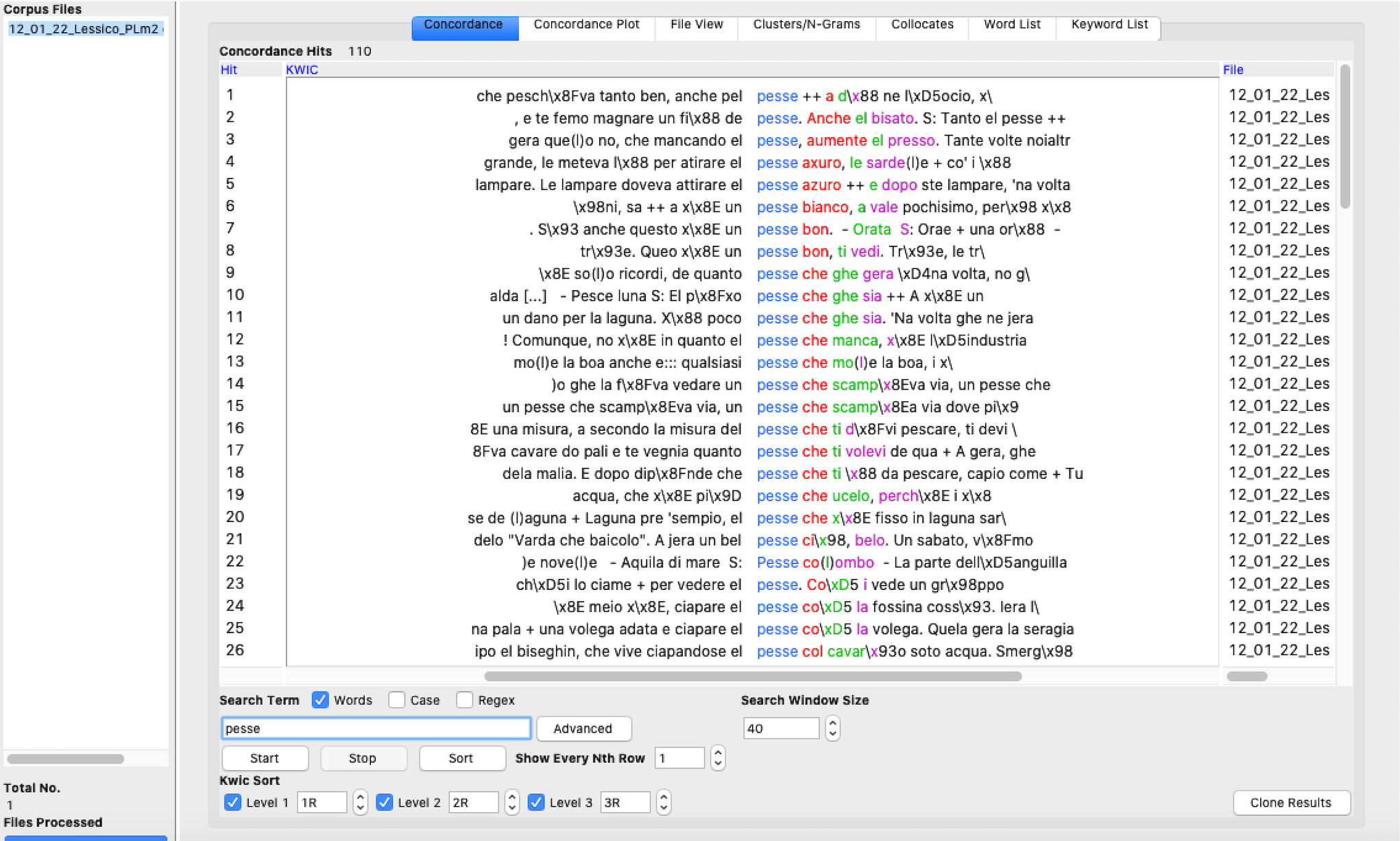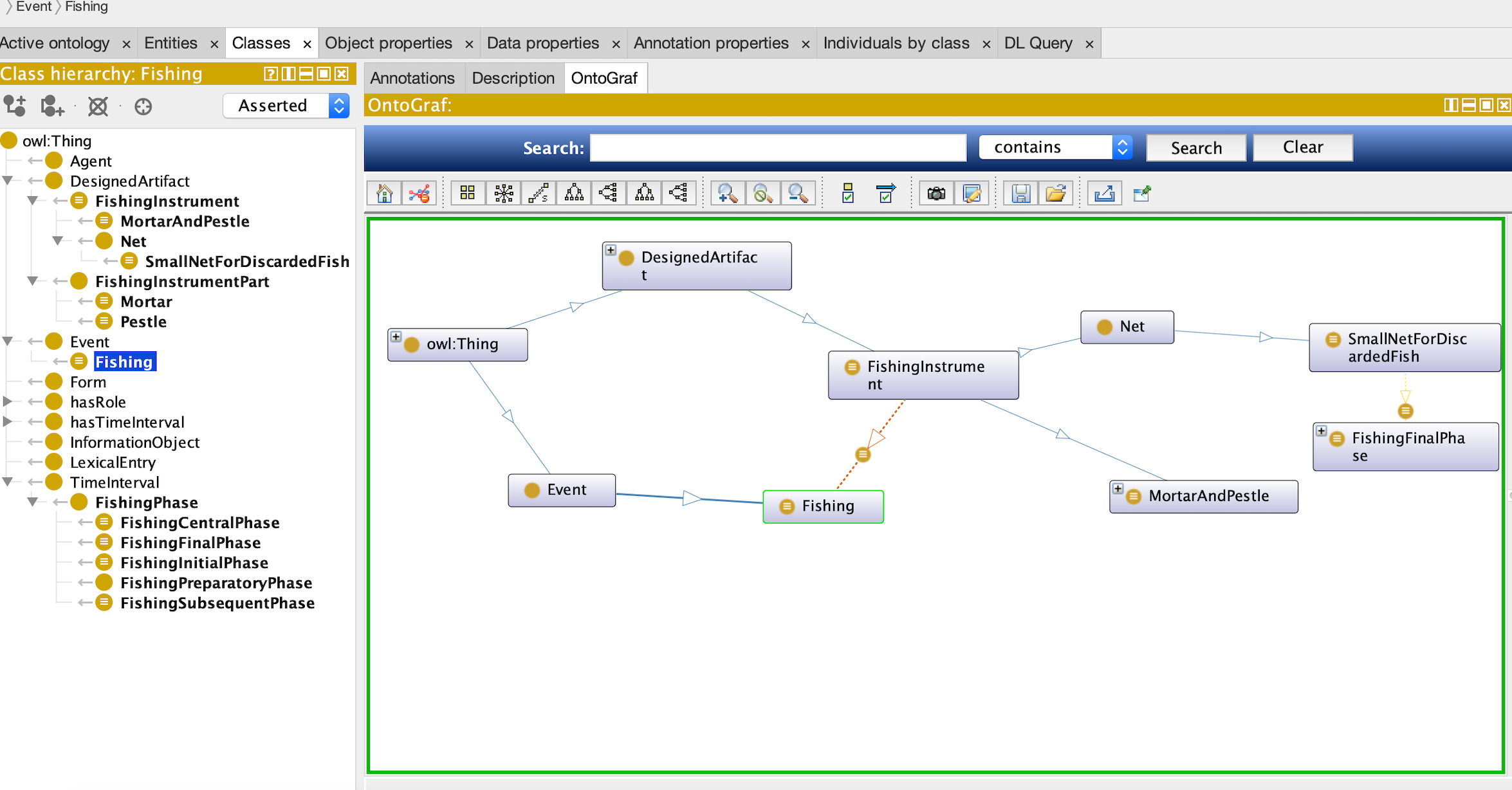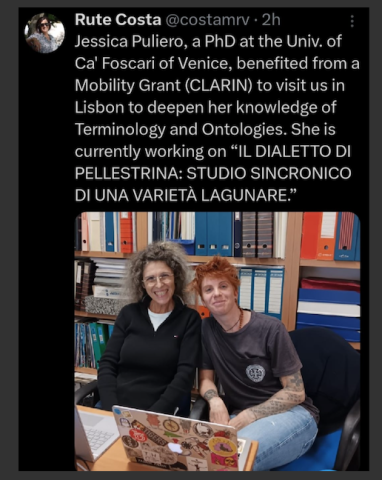I applied for the CLARIN Mobility Grant to enhance some aspects related to my doctoral project, which focuses on the study of the Pellestrina dialect and the development of digital tools for linguistic analysis. Thanks to the financial support from CLARIN, from 6 to 12 November, 2023, I was able to visit the Faculty of Social Sciences and Humanities at the Universidade Nova de Lisboa (FCSH), and connect with some of the most qualified European scholars in the field of Digital Humanities and computational linguistics.

From the outset, the atmosphere appeared natural and conducive. On the first day, Costa and Ramos invited me to present the results achieved in OntoLagoon, a small and experimental project to which they approached with a professional and critical eye, but always in a constructive manner. From Prof. Costa, I received many insights on the conceptual elaboration and the applicative potential of the ontology, while the following days were dedicated to working with Prof. Ramos, particularly relevant from an operational point of view as together we identified and laid the groundwork for some important improvements to be made to the set of classes and relationships present in the conceptualisation of OntoLagoon.

Another significant aspect of my stay in Lisbon was the opportunity to closely observe the work carried out on MORDigital, a project that involves encoding António de Morais Silva's Diccionario da Lingua Portugueza. Supported by the Portuguese FCT and led by the Universidade Nova de Lisboa, MORDigital integrates lexicography, terminology and computational linguistics, with its focus on organising and describing the levels of linguistic knowledge in the Diccionario, using Lex-0, and Ontolex-Lemon standards.
